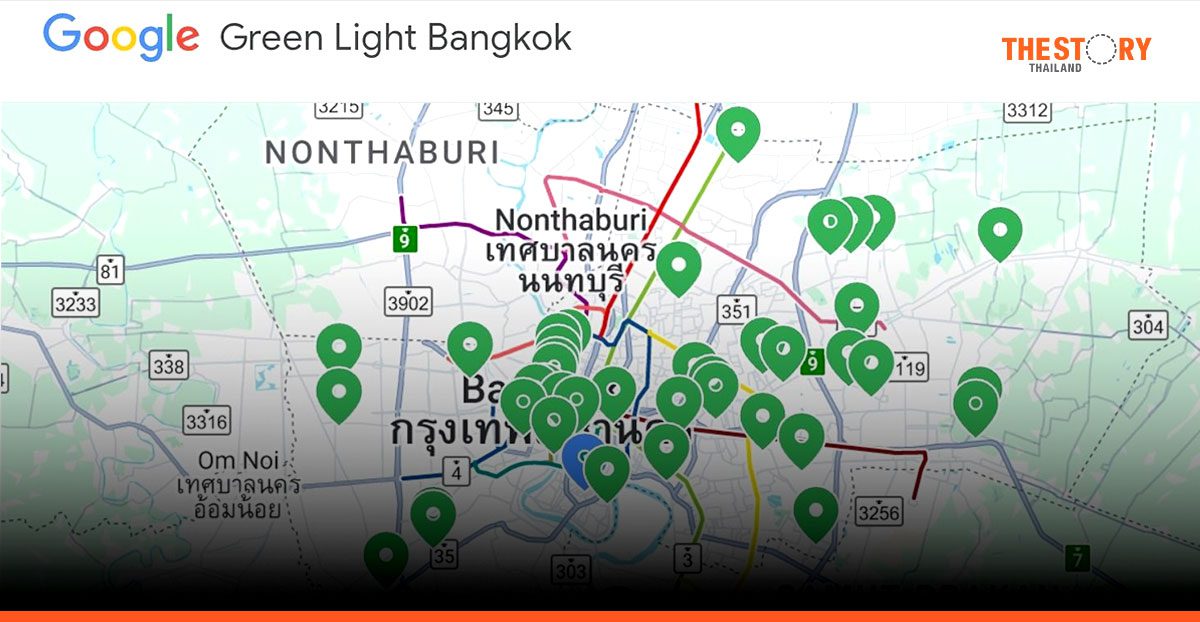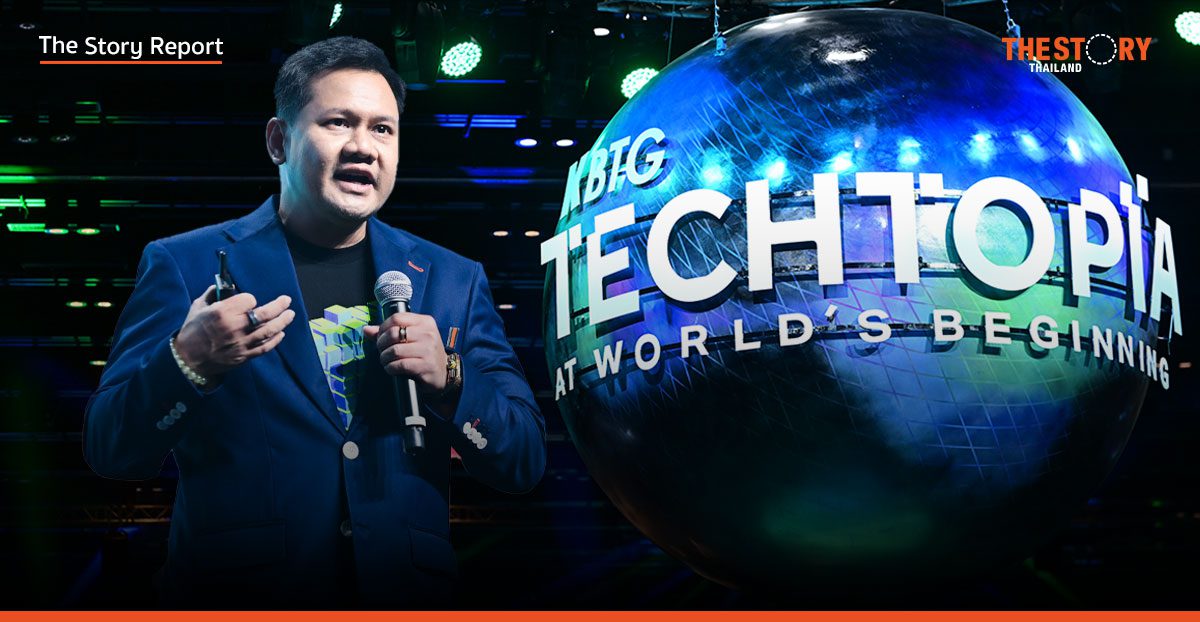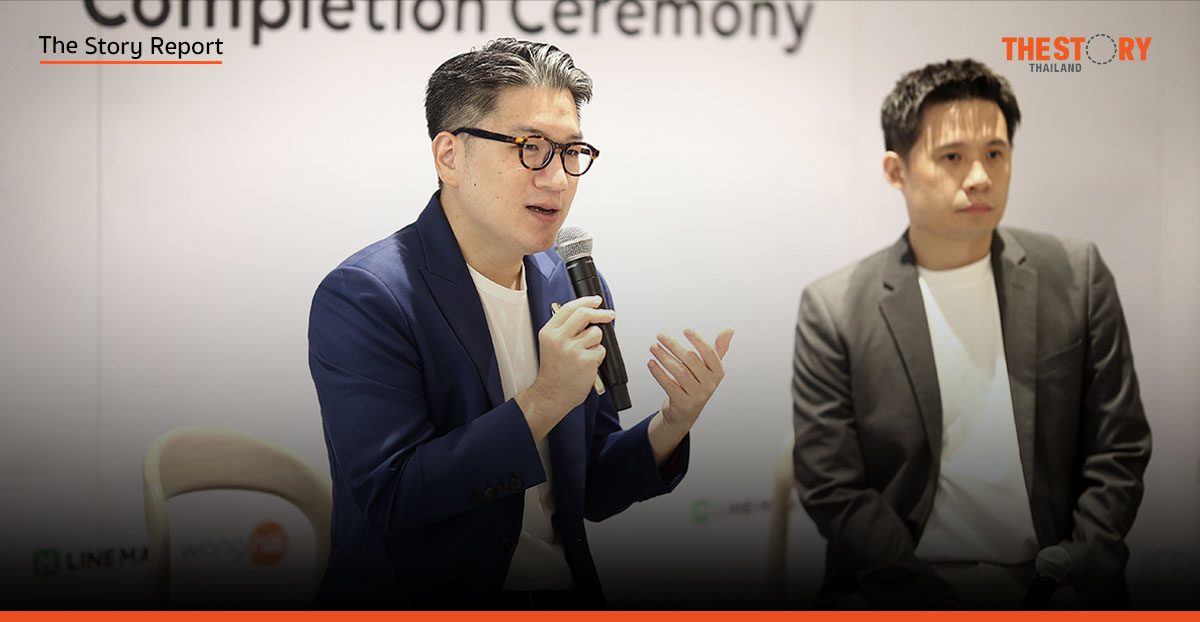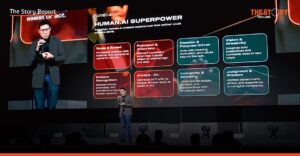The Bangkok Metropolitan Administration (BMA) announces a partnership with Google’s Project Green Light to use AI-powered technology to improve traffic signal timing and reduce congestion at some of the city’s busiest intersections. The initiative leverages artificial intelligence (AI) and driving trends from Google Maps to analyze traffic patterns and generate recommendations to optimize signal timing. By reducing unnecessary stops and minimizing stop-and-go movement, the program aims to smooth traffic flow and reduce vehicle emissions, offering a more innovative and greener way to manage city streets.
Since the program’s launch in February 2025, BMA has implemented Project Green Light’s AI-powered recommendations at key intersections in Bangkok. Bangkok is one of 18 cities globally selected to participate in this pilot project, marking a significant step toward more intelligent, more efficient urban traffic management.
Chadchart Sittipunt, Governor of Bangkok, said “Over the past 3 years, we have been committed to driving Bangkok towards a city of ‘opportunity and hope’ under our ongoing ‘9 Guiding Policies, 9 Good’ strategy, driven by the power of technology and collaboration from all sectors. This is to build a more efficient, livable, and hopeful Bangkok for everyone. Currently, we are leveraging AI technology for better management of traffic flow. Furthermore, we have established an AI Steering Committee to harness the potential of AI and to enhance work efficiency.”
Wisanu Subsompon, Deputy Governor of Bangkok, said “BMA is pleased to collaborate with Google in implementing Project Green Light. By utilizing Google Maps data and AI technology to analyze traffic patterns, we aim to adjust traffic light timings to better suit the actual traffic conditions at each intersection. This will effectively help alleviate traffic congestion. Currently, many intersections in Bangkok operate on a Fixed Time signal system with pre-set timings. Project Green Light helps analyze how to adjust the green and red light durations to respond to the volume of vehicles and delays at different times to ease traffic flow. We are proud that Bangkok is one of the 18 cities worldwide participating in this project.”
For the past 3 months, Project Green Light has analyzed traffic at hundreds of signalized intersections across Bangkok using AI and Google Maps driving trends. The system offers recommendations to optimize traffic signal timing and flow. BMA traffic engineers then evaluate each suggestion for safety, practicality, and effectiveness before implementation. Once implemented, Project Green Light measures the impact on traffic patterns and provides this analysis to BMA to continue monitoring for any future needed changes.
Saranee Boonritthongchai, Country Marketing Manager, Google Thailand, said “Through Project Green Light, we are using AI to help improve the lives of people in cities around the globe by improving traffic flow and reducing emissions. Globally, early numbers indicate a potential for up to 30% reduction in stops and 10% reduction in emissions. We’ve had more than 55 million car rides per month using our system. The success of Project Green Light in Bangkok is only possible thanks to our partnership with BMA. We’re encouraged by the initial results we’ve seen in Bangkok and look forward to working closely with the BMA’s team to scale this technology to more intersections.”
EGCO Group posts 115% net profit increase to over 3.5 billion baht
NCSA and Palo Alto Networks collaborate to boost Thailand’s cloud policy












